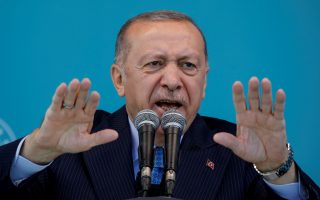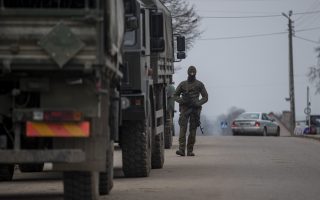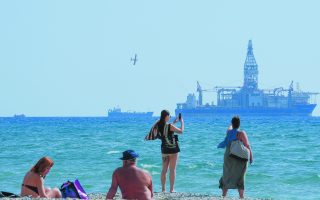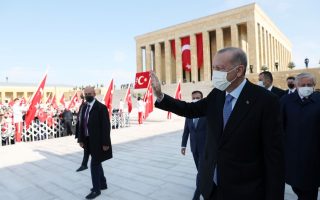New armaments require a new doctrine
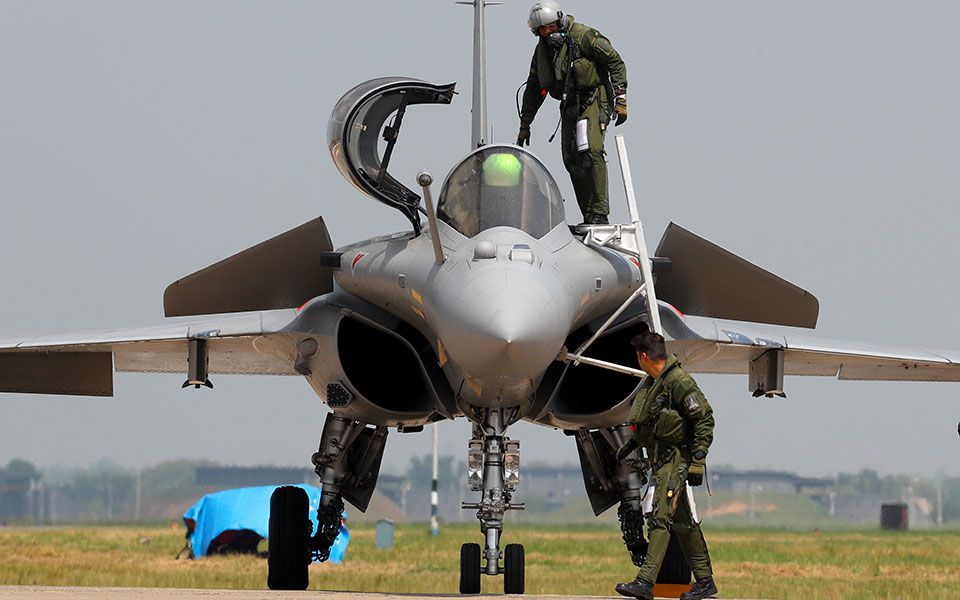
Greece is undergoing a large-scale rearmament program that will hopefully lead to a change in military doctrine. The approaching arrival of Rafale fighter jets, the recent purchase of new warships, the acquisition of Israeli defense systems, and the upgrade of the Greek special forces have shifted the balance of power in favor of Greece.
The acquisition of cutting-edge defensive equipment is a necessary prerequisite for the successful use of military force, but it is not the only one. A typical example of this is the situation in the Eastern Mediterranean in the summer of 1974. Despite Greek air and naval superiority, with the Phantom F-4E and the German submarines respectively, Athens failed miserably to protect the Republic of Cyprus. Without a proper doctrine and high morale, Greek armaments alone failed to halt the Turkish invasion.
The scars of Cyprus shaped an outdated and defensive perception of military strategy. We are at a point where Greek forces are operating daily. There is a gray zone of Turkish activities that are being conducted at a level above peace and a level below war. The constant harassment of Greek fighters, the incessant overflights above Greek islands, the aggressive intelligence gathering operations, and the weaponization of migrants all set the stage for a dysfunctional “new normal” that could escalate into conventional warfare.
In the existing institutional texts, Greece’s military doctrine is defined as defensive and deterrent to prevent the loss of sovereign territory. Our doctrine however does not accurately reflect the sweeping changes witnessed on the battlefields of today. The new technological applications favor the side that seizes the initiative. The use of unmanned aerial vehicles (UAVs), in tandem with the use of artificial intelligence and robotics, is moving us toward a revolution in military affairs. We are at the dawn of a new era where conducting military operations hinges on rapid speed, targeting accuracy, and, mainly, the element of surprise.
In any case, there is less clarity on who is the aggressor and who the defender. Unfortunately, truth has ended up becoming a subjective reality shaped by the cynicism of geopolitics and by the tools used to guide public opinion. There are more and more examples of this. In September 2020, Azerbaijan initiated hostilities against the Armenian enclave of Nagorno-Karabakh. With the support of Moscow and Ankara, along with the machinations of Azeri propaganda organizations, Baku did not find itself held responsible for its actions against the unarmed populace of the enclave.
The new equipment will provide the Hellenic Armed Forces with unprecedented operational capabilities. In a few years, the situation in the Aegean and the Eastern Mediterranean will be completely different. Hellenic Air Force fighters, equipped with cutting-edge radar and weapons systems, will rule the skies. The frigates of the Hellenic Navy, with their exceptional anti-air capabilities, will be able to create no-fly zones for enemy fighters with their area denial and anti-access weaponry (A2/AD). Furthermore, Hellenic Special Forces and certain units of the Hellenic Army will be able to rapidly deploy to any Greek territory.
Our military doctrine cannot remain static and immutable. The adoption of deterrence through retaliation is the right choice for Greece. A new military philosophy is necessary, one that will not be constricted by obsolete notions of offense and defense. Ideally, the new doctrine will put forward offensive defense and the seizing of the initiative on a strategic, operational and tactical level to completely demoralize the opponent. Training scenarios that focus on liberating captured territory send out the wrong message to a very experienced opponent who knows how to win wars. It is clear that the Imia crisis still haunts us. The armed forces must be able to act in a way that would make any offensive move too costly. In practice, the military should place greater focus on long-range strikes, even if just at a training level.
Turkey is currently going through an unprecedented financial crisis that could escalate into full-blown political instability. It would be great if our neighbor to the east could forge a path toward democracy and prosperity, to become a peaceful and sincere partner who seeks out collaboration. Until then the worst-case scenario is still something we have to prepare for. The rearmament program must be accompanied by a shift in military doctrine. No one can ever be allowed to dare threaten our country again.
Emmanuel Karagiannis is a reader in international studies at King’s College London and the University of Macedonia.

